
Living with Literature in a Mackay Home
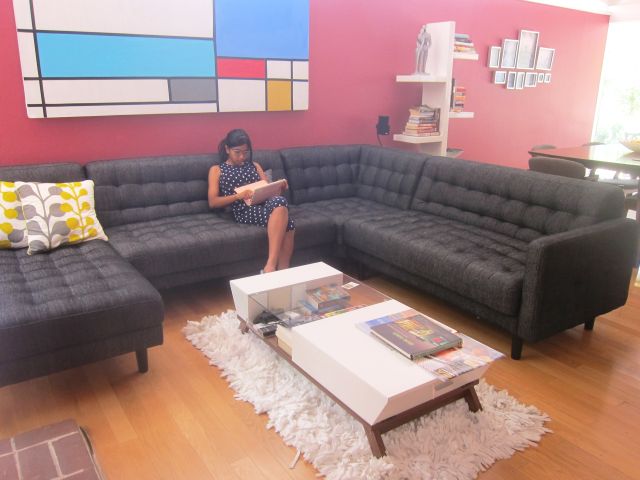 |
|
|
In many ways, KiteReaders is a good, old-fashioned family business—dad and mom Chintu and Aarti Parikh publishing e-books out of their artfully designed and decorated modern home, daughters Sachi and Mannsi reading and critiquing them.
But these are e-books, after all, so what’s old fashioned about that?
Plenty, says Chintu, a surprisingly easygoing and unassuming man, for a startup entrepreneur, who says that e-books, like tradional books with, you know, pages to turn, share one all-important feature. Storytelling.
“Storytelling has so much power,” he says. But with e-books, he adds, “It’s interactive storytelling.”
“This is the next phase of storytelling,” he says. “It not only has animated storytelling and beautiful art but you can interact with the story and really make it your own.”
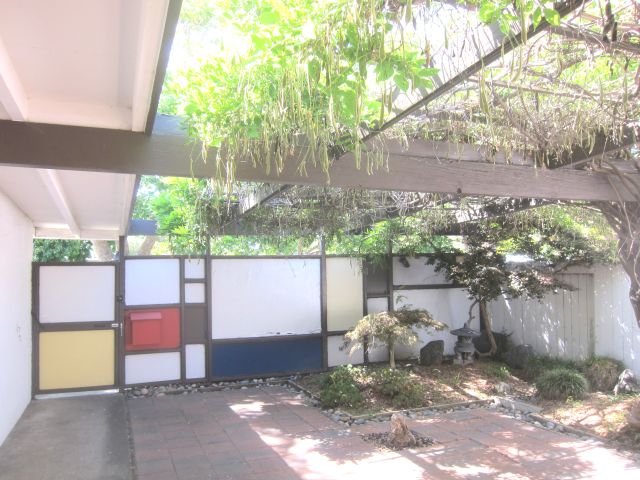 |
|
|
The Parikhs live in a strikingly original, and artistic, home designed by Eichler’s architects Anshen and Allen for developer John Mackay in the mid-1950s in Santa Clara. Their home makes a notable street-side impression with a fence painted in a Mondrian-like pattern. The artwork was done by the prior owner, an artist, but the Parikhs have continued the theme inside the home, creating a neo-Mondrian painting to hang over the living room couch.
KiteReaders got started in 2012 as an outgrowth of the couple’s first startup, creating custom apps for publishers. One publisher, Little Pickle Press, asked them to create a digital book as well.
“It was a fun and exciting project,” Aarti says. “The book had animation and music and art. We just felt we had found our calling.”
The e-book, 'What Does it Mean to Be Global,’ found an audience, winning industry awards, including a big one in the multi-cultural category. “We beat Disney,” Aarti says, leading the pair to think, “It looks like we’re good at this. We want to pursue it.”
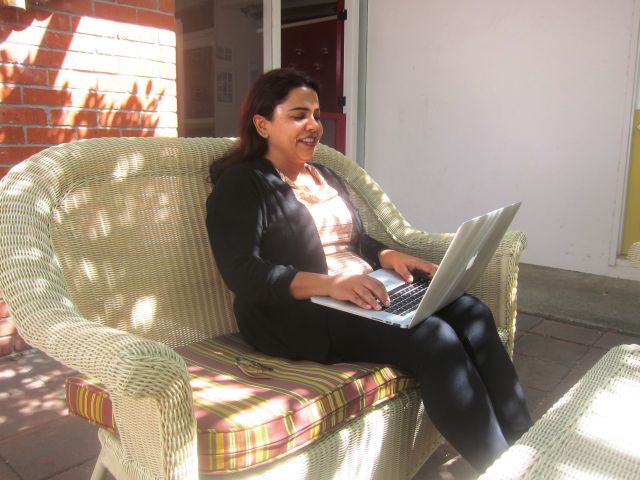 |
|
|
Today they contract with a variety of children’s book publishers to turn their hard-copy books into digital books. And KiteReaders publishes e-books on its own, working with authors and illustrators across the globe, thanks to the wonders of Skype.
It really is a family operation. “Chintu is a marketer. I’m an engineer,” Aarti says. “Between the two of us we make a really good team.”
“Sachi critiques our books and keeps the bar high,” Chintu says. “‘Dad, this is boring! You have to do something more here.’ They give you the hardest feedback.”
Before going into business on their own, both Chintu and Aarti had stressful jobs at Yahoo. “This is much better for our kids and our lifestyle to work out of our home,” Aarti says. “And the kids are older too. I can watch them. You can see everywhere throughout house.”
They have owned the house since 2008 and began working from home last year.
“We just fell in love with this house,” Aarti says, adding, “We were looking for a place where we could feel the outdoors even if we were inside. This place gives you a sense of peace. I can sit here and see the green.”
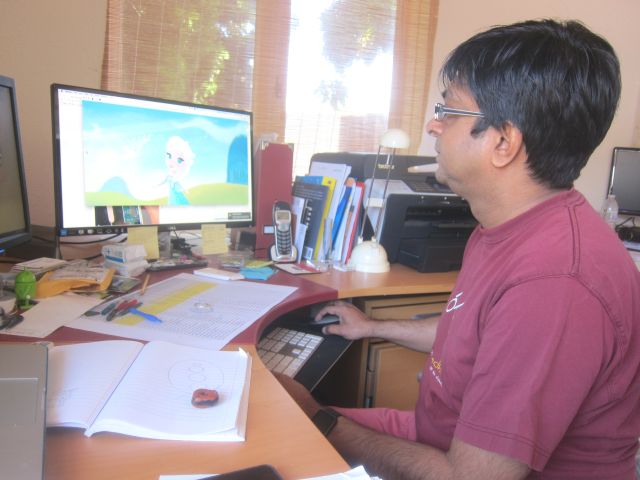 |
|
|
One reason they bought the house, Chintu says, were the signature Mackay Dutch doors. Neither Chintu nor Aarti knew anything about Mackay homes when they visited during an open house. There they ran into two people who did, Stephen and Mary Estes, who live in the neighborhood and are super Mackay fans.
Stephen and Mary clued them in about Mackay and the history of mid-century modern homes in the area. “Oh look,” Stephen and Mary oohed, “an original bathroom,” Aarti recalls. “[Mary] pointed out all the cool features [of the home].”
Now the Parikhs are fans of mid-century modern, preserving their home’s original architecture and going to open houses of modern homes to drink it all in.
Chintu says “the house really enhances our creativity in many ways," noting the complete openness both within the house and to the outdoors. “It’s seamless inside and outside.”
“I love the house, especially in spring, because outside there are purple flowers,” Sachi adds. “It feels like we’re blending in with the outside and the inside.”
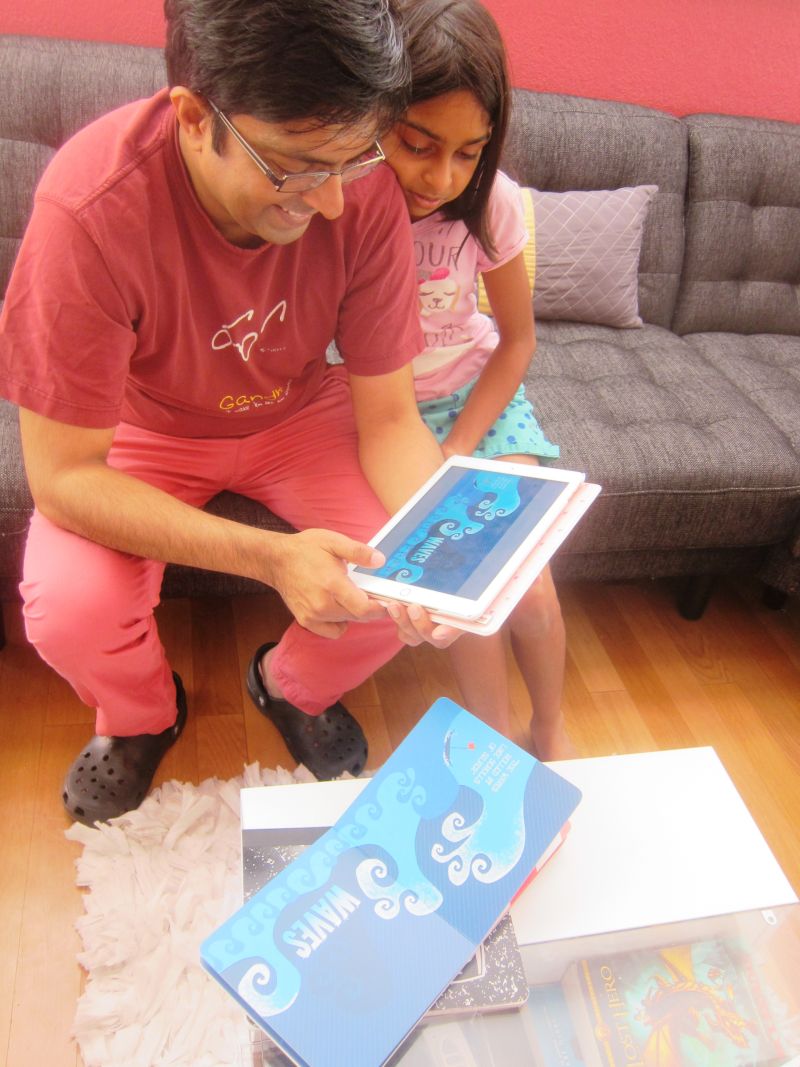 |
|
|
Life in the Parikh household is not entirely digital. Both parents and kids often curl up on the couch with pages made of paper and marked with ink.
“I like reading books both ways,” Sachi says, adding, “It depends on what book you’re reading. If you’re reading my sort of book, they’re really long, and they’re better to read the old-fashioned way."
But, she says, “If I’m reading a hard book, I can look words up in the dictionary” that’s built into the e-edition. Aarti notes, “You can touch a word, and dictionary pops up. It’s very convenient.”
“I don’t think it’s cheating,” Sachi says of reading e-books, “or like watching TV. For younger kids, it’s better than watching TV. It makes it easier for a three-year-old to learn how to read, with all these games. Their memory gets better as their vocabulary grows, and all that.”
Chintu and Aarti have heard all the complaints that screen time is destroying the world’s youth. “This debate is never going to end,” Aarti says, noting that much screen time is purely passive, like watching TV. “Our mission is to turn screen time into reading time,” Chintu adds. “That is our company motto.”
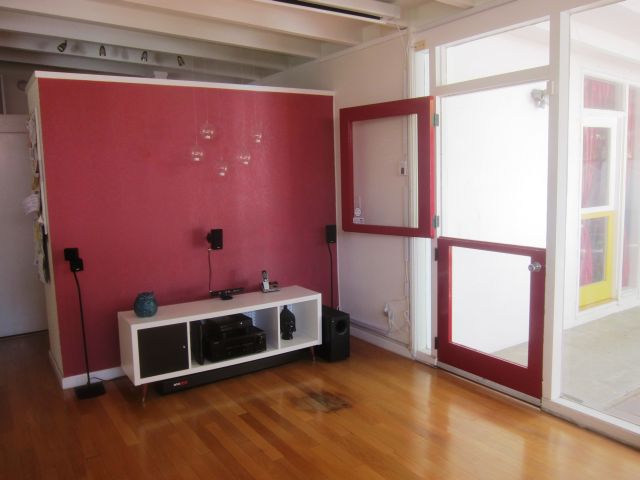 |
|
|
They say their e-books do not track any of their reader’s personal information for advertisers or marketers – though apps can allow parents to follow along with the young readers in the family.
“Both Aarti and I come from small cities in India,” Chintu says. “A lot of what we learned in life came from books, magazines, newspapers. My town had an excellent library.”
“We owe what we have achieved in life to books and reading.”
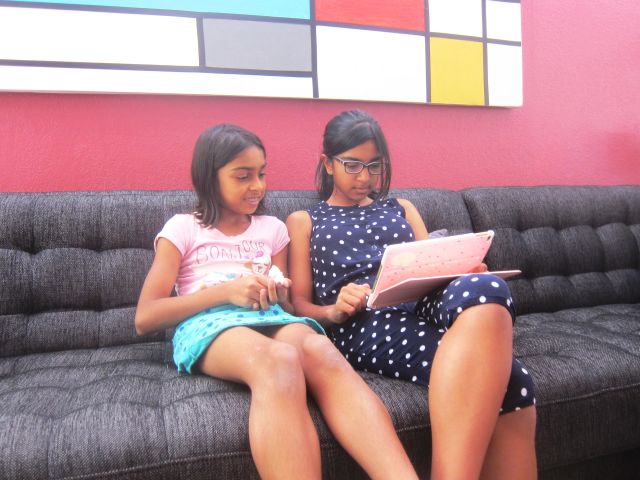 |
|
|
- ‹ previous
- 382 of 677
- next ›



